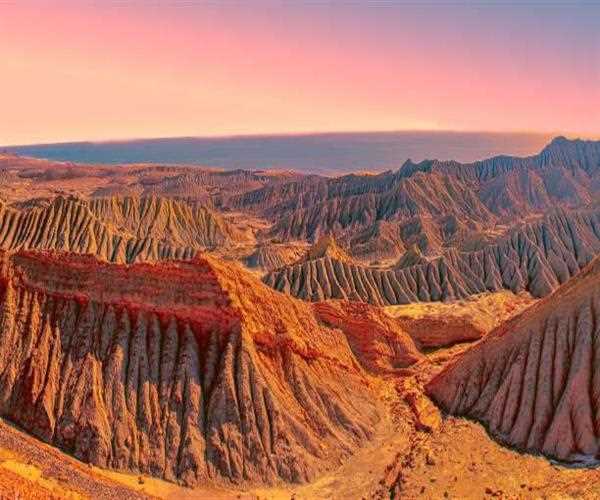
22-Mar-2023
Why Balochistan should be a part of India
The Khan of Khalat agreed with the British that Balochistan could remain independent, like Sri Lanka, Nepal, Burma, and Kashmir, Balochistan wants to be its own nation. After Sardar Vallabhai Patel turned down Khan of Khalat's offer to join the Indian part of the partition, this agreement was reached. However, Pakistan was unable to contain itself, so it invaded Khalat, murdered his family in front of him, and forced him to produce an instrument of succession. Pakistan attempted the same thing with Kashmir, and now everyone knows how badly that place is run!
Since then, the people have been treated as second-class citizens of their own "country" and have been exploited for their natural resources by China and Pakistan in the CPEC. The Baloch people will fight for their independence from Pakistan for a long time. Be that as it may, when they gain autonomy, it would be shrewd for them to join India than to stay free in light of the fact that Pakistan will pull every one of the filthy stunts at its disposal to cause disorder in Balochistan with assistance of the Indian armed force. Balochistan has the potential to prosper thanks to India's robust economy.
First, I'd like to clarify a few things.
1- While Lasbela and other states were bound by an agreement to the Khan of Qalat, Qalat was an independent state.
2- Pakistan's proposal to merge into Pakistan was rejected by the Qalat assembly.
3. Pakistan then invaded it with force, and Agha Kareem was the first person to rebel.
4-Since 1948, the Baloch people have fought for their freedom.
5- Over the past seven decades, Baloch leaders have repeatedly attempted to resolve this conflict through dialogue, but the Pakistani establishment has steadfastly suppressed their voices. We lost thousands of lives as a result.
6-Men, women, children, and even infants are regularly kidnapped by Pakistani security forces in Balochistan.
7: Balochistan's so-called democratic government is based on elections with only 27% of eligible voters participating.
8- A. Qudos Bizanjo won 500 votes, or 1%, and became the speaker of the assembly in Balochistan.
9: The former chief minister Abdul Malik Baloch just received 4000 votes (more than 600,000 registered voters).
Based on the preceding, it is evident that the Balochistan dispute dates back to 1948 and that we, the Baloch people, have the legal right to fight for our freedom.
Now let's get to the point: how can India support this fight? Therefore, it is very easy to comprehend.
India can assist the Baloch people in speaking up for themselves globally.
In addition, by providing political asylum, India can welcome the Baloch people into their country.
Baloch people are now in danger in Balochistan. However, India may provide them with safety.
The Pakistani atrocities in Balochistan can be revealed with the assistance of Indian media.
Free Balochistan can also be supported by Bangladesh, Afghanistan, Sri Lanka, and other nations.
Despite being 46% Pakistani land, very little development has taken place in Balochistan. The region might give off an impression of being a no man's land, however that is not the situation. The 75 sq. km. Lasbela Plains and the areas in NE Balochistan (such as the fruit-growing region of Quetta) are both fertile. Additionally, the province is rich in mineral resources. Natural gas is referred to as "Sui gas" in Pakistan because the Sui gas field near Sibi in Balochistan produces a significant amount of the country's gas. Zhob is home to sulfur, Koh-e-Sultan to antimony, and Reko Diq/Saindak to major gold (and copper) deposits. However, resources are still underutilized, and in the case of "Sui gas," Balochistan receives very little gas. However, most of Punjab is connected to gas.
Balochistan has the lowest road density in Pakistan and no major rail connection, with the exception of Karachi–Quetta—Iran, even on the Makran coast, where the installation of the lines is relatively straightforward from a technical standpoint. Although the Gwadar project does not significantly benefit Balochis, it has the potential to become the next Dubai.
Then, at that point, we have military overbearingness and the notorious "missing people". In 1948 (under Jinnah's rule, I believe), in the 1970s (with ZA Bhutto), and in the 21st century (with Gen. Musharraf), the military carried out operations. Additionally, in Balochistan, people have been kidnapped, most likely by FC, and are "missing." Years later, bodies have been discovered.

SEO and Content Writer
I am Drishan vig. I used to write blogs, articles, and stories in a way that entices the audience. I assure you that consistency, style, and tone must be met while writing the content. Working with the clients like bfc, varthana, ITC hotels, indusind, mumpa, mollydolly etc. has made me realized that writing content is not enough but doing seo is the first thing for it.
Join Our Newsletter
Subscribe to our newsletter to receive emails about new views posts, releases and updates.
Copyright 2010 - 2026 MindStick Software Pvt. Ltd. All Rights Reserved Privacy Policy | Terms & Conditions | Cookie Policy